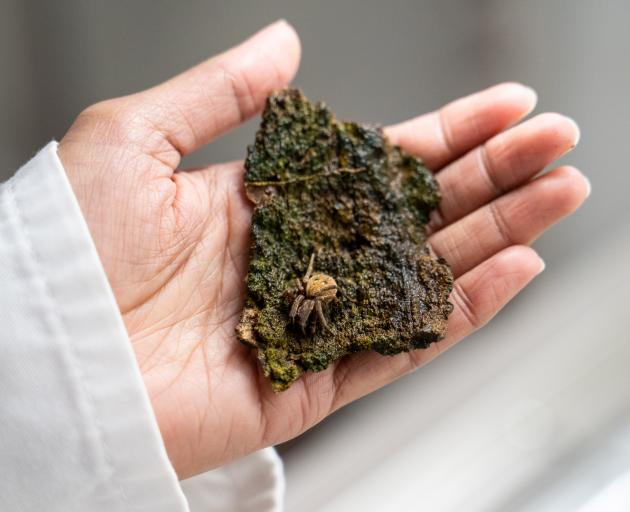Science
Parasitic Worms Turn Spiders into “Zombies,” Threatening Ecosystem

A fascinating ecological phenomenon has emerged in New Zealand, where parasitic nematodes known as mermithids are transforming spiders into what researchers describe as “zombies.” Usha Mendis, a PhD student at Lincoln University, is leading the investigation into these parasites and their impact on local ecosystems.
Mendis aims to uncover how these nematodes infiltrate various invertebrates, including caddisflies, mayflies, and grasshoppers, as well as numerous endemic spider species. She has identified three distinct types of spiders that carry the parasite, raising concerns about biodiversity within the region. According to Mendis, “New Zealand has a large number of endemic spiders… over 90% of them are endemic. If something were to happen to them, it would not be good for our biodiversity.”
The role of spiders in the food chain is critical, and the presence of mermithids disrupts their natural behaviors. When infected, spiders exhibit changes that Mendis describes as “horrible” and ultimately fatal. Signs of infection include abnormal growth, such as thicker limbs and swollen abdomens, which can lead to a zombie-like appearance. “They can be very abnormal. The spider is physically changing,” she noted. The only definitive way to confirm an infection is to wait for the spider to die, at which point the nematode emerges to continue its lifecycle.
Despite understanding how the nematodes exit the spider, researchers are still unraveling how they initially enter their hosts. “They can’t live without a host. They consume the energy and nutrients of the host, and grow inside it,” Mendis explained. The nematodes are driven to seek moisture, which is essential for their development. This leads infected spiders to venture towards water sources, often resulting in their drowning.
Mendis is utilizing water traps to collect the nematodes, as they thrive in moist environments where they can reproduce and lay eggs, starting the cycle anew. It has only been 35 years since mermithids were first reported in New Zealand, and much remains to be learned about their interactions with local spider populations.
In light of these findings, Mendis urges the public to reconsider their perceptions of spiders. “Spiders may look disruptive and creepy, but they’re not the enemy. They’ve got their own problems to deal with,” she stated. As research continues, understanding the implications of these parasitic relationships will be vital for maintaining the health of New Zealand’s unique ecosystems.
-

 World4 months ago
World4 months agoTest Your Knowledge: Take the Herald’s Afternoon Quiz Today
-

 Sports4 months ago
Sports4 months agoPM Faces Backlash from Fans During Netball Trophy Ceremony
-

 Lifestyle4 months ago
Lifestyle4 months agoDunedin Designers Win Top Award at Hokonui Fashion Event
-

 Entertainment4 months ago
Entertainment4 months agoExperience the Excitement of ‘Chief of War’ in Oʻahu
-

 Sports4 months ago
Sports4 months agoLiam Lawson Launches New Era for Racing Bulls with Strong Start
-

 World5 months ago
World5 months agoCoalition Forms to Preserve Māori Wards in Hawke’s Bay
-

 Health4 months ago
Health4 months agoWalking Faster Offers Major Health Benefits for Older Adults
-

 Lifestyle4 months ago
Lifestyle4 months agoDisney Fan Reveals Dress Code Tips for Park Visitors
-

 Politics4 months ago
Politics4 months agoScots Rally with Humor and Music to Protest Trump’s Visit
-

 Top Stories5 months ago
Top Stories5 months agoUK and India Finalize Trade Deal to Boost Economic Ties
-

 Health2 months ago
Health2 months agoRadio Host Jay-Jay Feeney’s Partner Secures Visa to Stay in NZ
-

 World5 months ago
World5 months agoHuntly Begins Water Pipe Flushing to Resolve Brown Water Issue









